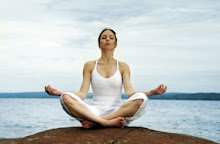 Deep breathing is a simple, yet powerful, relaxation technique with its focus on full, cleansing breaths. It can be practiced almost anywhere, almost at a moment's notice and provides quick relief to stress levels helping to keep them in check.
Deep breathing is a simple, yet powerful, relaxation technique with its focus on full, cleansing breaths. It can be practiced almost anywhere, almost at a moment's notice and provides quick relief to stress levels helping to keep them in check. Deep breathing is the cornerstone of many other relaxation practices, too, and can be combined with other relaxing elements such as dance, slow movement, aromatherapy and music.
How to practice deep breathing
The key to deep breathing is to breathe deeply from the abdomen. When you take deep breaths from the abdomen, rather than shallow breaths from your upper chest, you inhale more oxygen. The more oxygen you get, the less tense, short of breath, and anxious you feel. So the next time you feel stressed, take a minute to slow down and breathe deeply:
If you have a hard time breathing from your abdomen while sitting up, try lying on the floor. Put something on your stomach, breathing so that you feel your stomach rise as you inhale and exhale.


